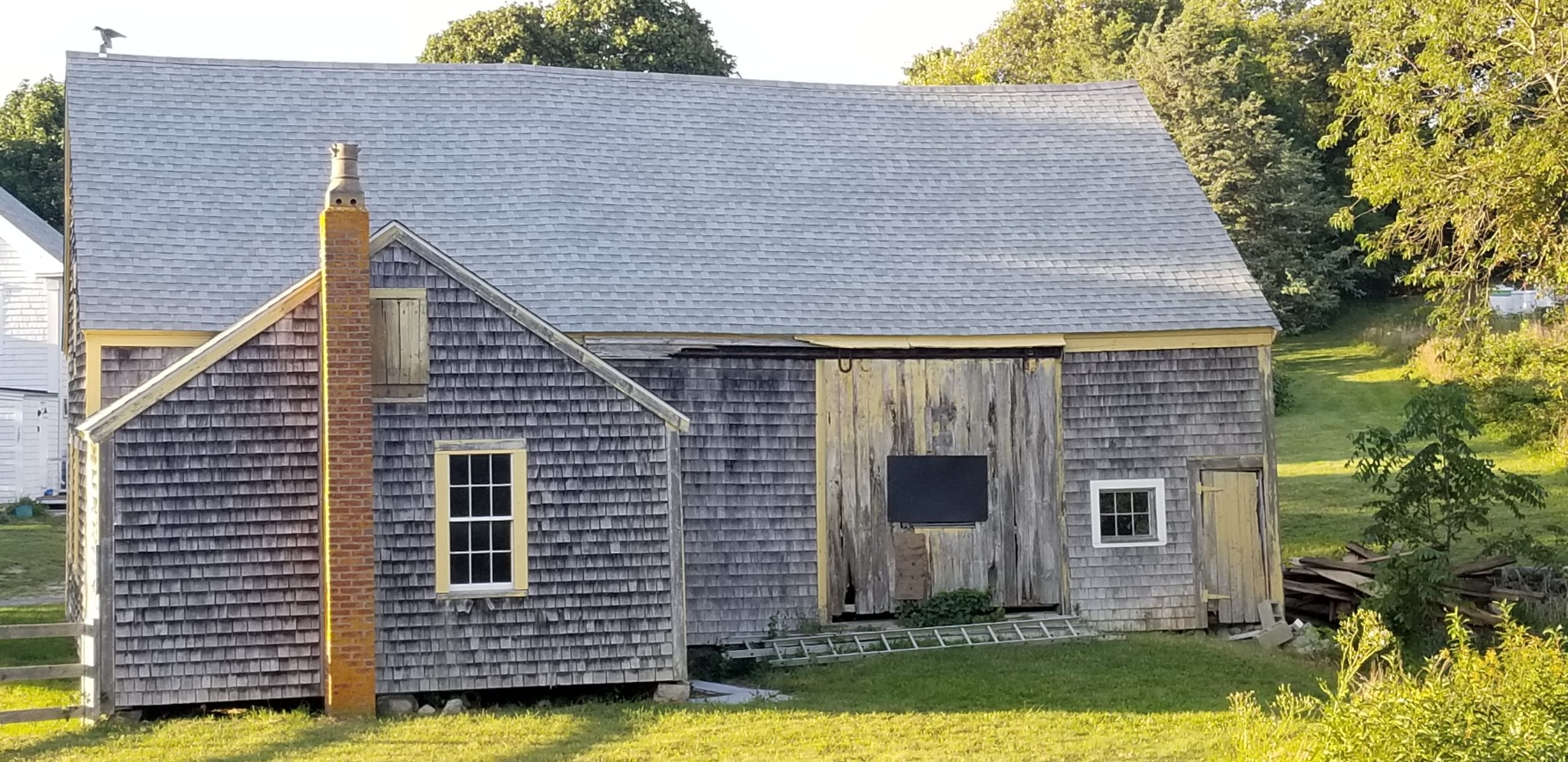By Emily Renaud
When Manomet president Lizzie Schueler took the helm in 2020, she immediately noticed that some buildings on the 40-acre headquarters property needed rehabbing.
“The decay that had taken hold of some of the older farm buildings was notable to the eye,” she says. “I didn’t want to remove them, particularly the barn, and felt it was important to maintain the integrity of these historic landmarks.”
As Manomet looks to the future and evolves its education and outreach programs, Schueler says it’s time to reimagine how the community could engage with the property, including the aging barn. She says the main goal for the barn’s restoration, which got underway in November 2021, is to preserve the integrity of the barn while preventing further deterioration and collapse. To lead the work, Schueler enlisted the help of local volunteer Robert Tose to coordinate the restoration process with input from Manomet staff.
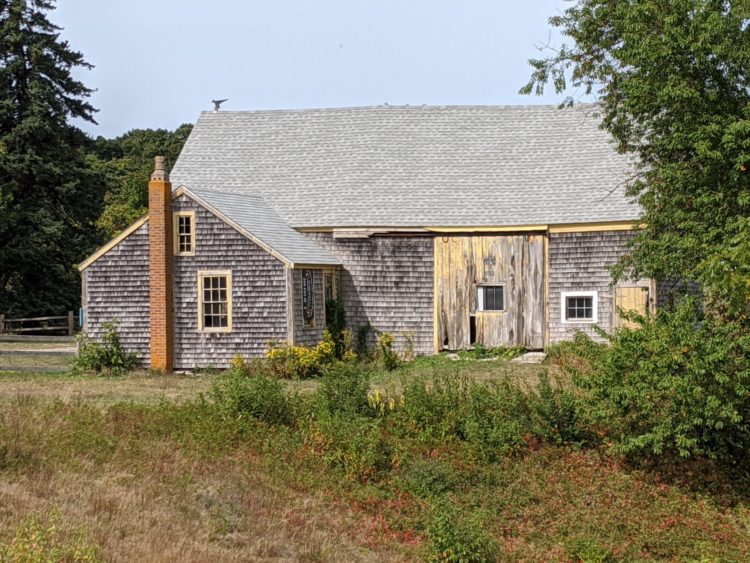
“Manomet is just beginning a long-range facility plan for its 40-acre property, in addition to building out an interpretive nature trail,” she says. “As we expand our education and public access to the property, we want to maintain a safe and visually appealing experience.”
“Spending my summers at my grandmother’s house up the hill from the Holmes Farm as a child, I’ve been close to the property most of my life,” Tose says. “The property is truly unique and represents the last of its kind in this area.”
Before Manomet acquired the 20-acre Holmes Farm in the 1980s, the land was an active farm producing various crops, including potatoes, onions, strawberries, and later, cranberries. The Holmes family, who owned and farmed the land for generations dating as far back as the 1850s, sold their property to Manomet after admiring how Kathleen Anderson made use of their neighbors’ adjacent property. Anderson had acquired the Ernst home in 1969, transforming it into the then-called Manomet Bird Observatory (MBO).
The main barn on Holmes Farm has served many purposes since Manomet’s acquisition, from concert venue to storage facility for landscaping equipment. This past winter, a renovation firm began refurbishing the old barn by replacing rotted wood, stabilizing its old fieldstone foundation, and installing new floors and a large bay door.
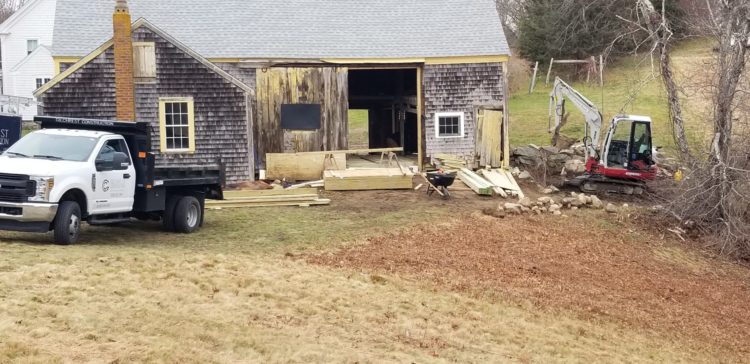
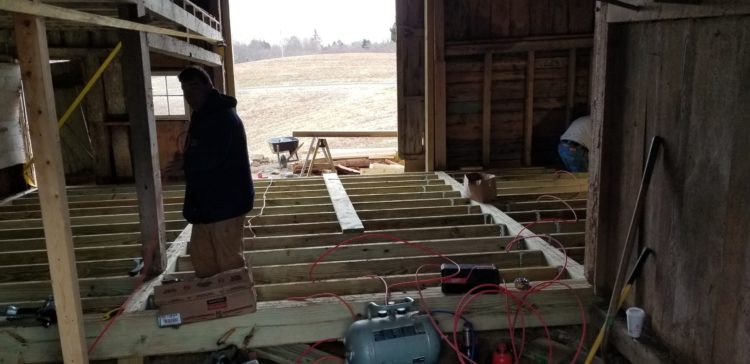
“We prioritized making bigger structural changes to prevent the building from further collapsing on itself,” Tose says. “The general reconditioning of other portions of the barn, like windows and doors, will now continue incrementally with the long-term goal of totally repairing all deteriorated elements. That’s a task I’m taking on myself!”
For now, the newly-reinforced barn serves as much-needed storage space for Manomet’s research equipment, including mist nets for the bird banding operation and the newly-acquired skiff, which the Resilient Habitats team uses for shorebird research on Cape Cod. Most importantly, it has been cared for, will not further deteriorate, and will proudly welcome visitors to Manomet.
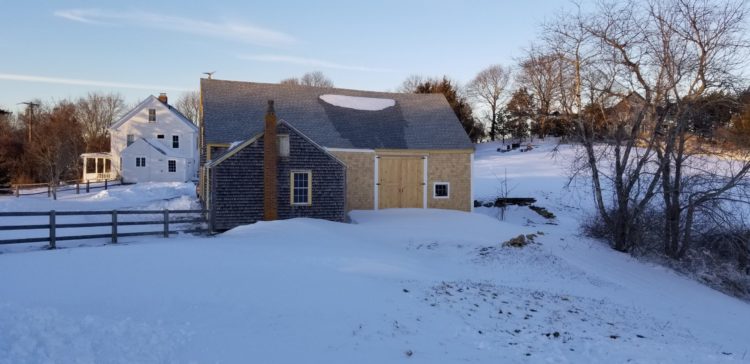
“There are so many possibilities, both with core research and community education,” Tose says. “I enjoy the opportunity to help out and look forward to seeing what’s next!”
Funding for this and other restoration work at Manomet’s headquarters was made possible by the Mass Cultural Council.





 Back to all
Back to all